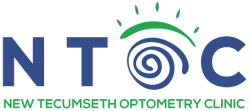Presbyopia is a very common condition, experienced by almost all adults over the age of 45, regardless of sex, race, or genetic background. As the eye ages, the lens at the front of the eye that controls how light enters starts to lose its flexibility. As the lens stiffens, close up focus, such as reading, computer use, and the like becomes increasingly more difficult to obtain.
The onset of presbyopia can be gradual or sudden, however; regular comprehensive eye exams can help detect early symptoms. The earlier that this degeneration of the lens is detected, the more options exist regarding treatment.
Presbyopia Symptoms
Some common symptoms of presbyopia are:
- Increased eye strain in close focus situations
- Eye fatigue when reading
- Marked difference in your close focus vision
- Difficulty reading fine print
- Holding printed or text materials farther away to achieve focus
- Less common symptoms that may also be indicative of presbyopia are:
- Difficulty with fast focusing from close to medium range, an example being looking down from the road when driving at the speedometer then back up again and having blurry vision for a few moments
- Needing brighter and more direct lighting for tasks that did not require as much light before.
Treatment of Presbyopia
Presbyopia does not currently have a cure. Fortunately, regular and specialized vision correction methods have shown to be very effective at managing this very common condition.
Bifocal and/or multifocal eyeglasses or contact lenses are the most frequently prescribed treatment of presbyopia. For ideal candidates, laser eye surgery may also be an effective treatment option for presbyopia.
Other surgical options exist, depending on the severity of the presbyopia from moderate to severe. These include a procedure known as conductive keratoplasty, which uses very tight beam radio waves to reshape the cornea of the eye; and refractive lens exchange, an invasive surgery where the natural lens in your eye is removed via incision, and a synthetic lens, known as an intraocular lens implant, is inserted in its place.
Treatment starts with an eye exam in our Alliston office.

